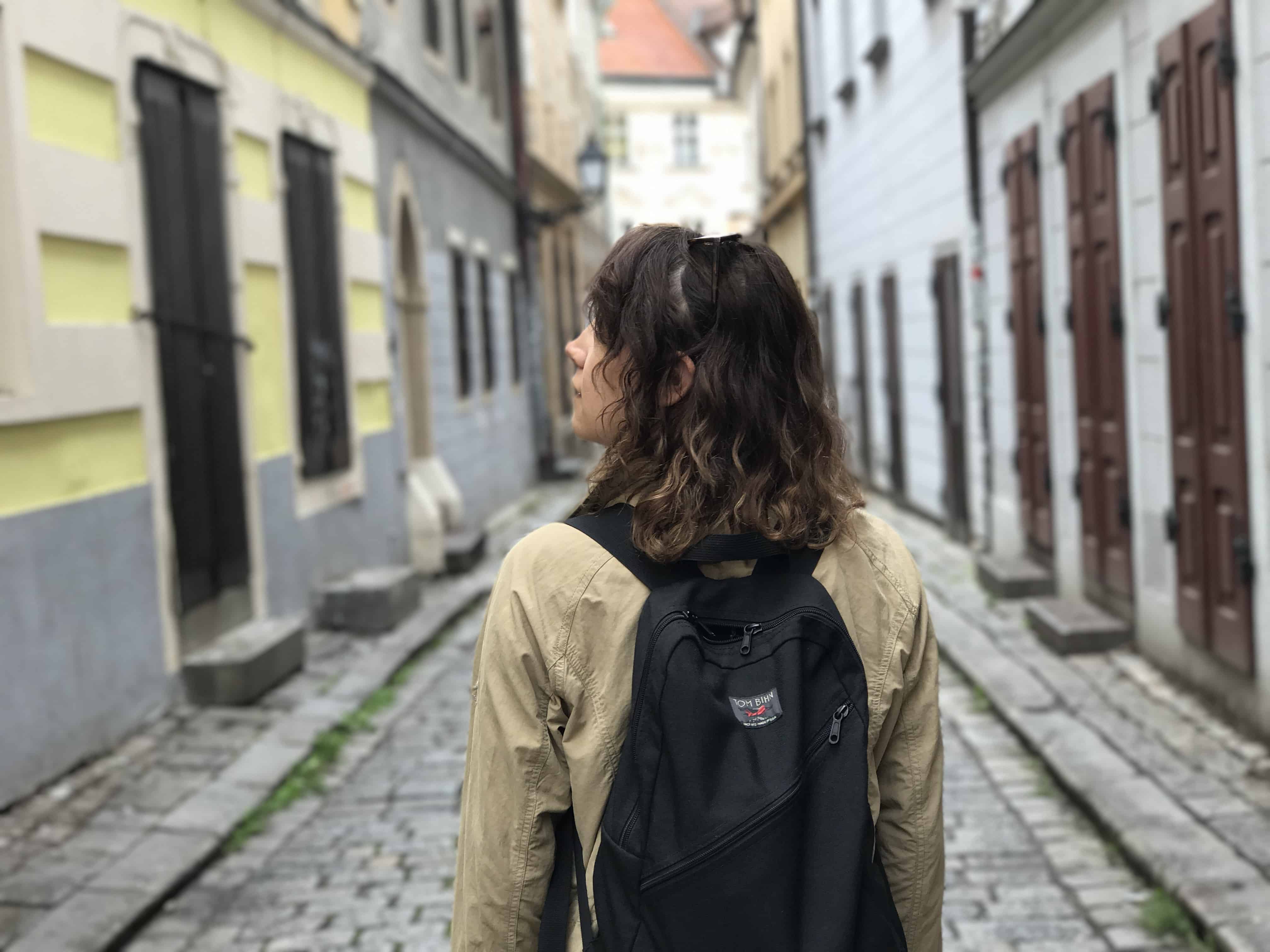
In September, Alayna Fender set forth to join a Contiki tour of central and eastern Europe –including Berlin, Prague and Budapest – after receiving an invitation to create a series of videos for her popular YouTube channel, MissFenderr. It may sound like a dream opportunity to many people, but for this 25-year-old Internet personality, the prospect wasn’t so simple.
About 10 years ago, Alayna was diagnosed with agoraphobia, a condition in which the afflicted fear places or situations where they might feel panicked, trapped or helpless. The anxiety first surfaced in junior high school, and while her fears were initially eased through counselling, they soon returned in full force in high school and through the university years, manifesting in an utter inability to do things that others would consider ordinary – such as going to the movies.
“I just wouldn’t go, I couldn’t go,” Alayna remembers. “You say no to things when you want to say yes. And spontaneity was out of the question – in my personal life and my professional life.”
Alayna is among one in five Canadians who suffer from a mental health illness; she’s also part of the 15-to-24 age demographic that is more likely to experience mental illness than any other age group, according to the Centre for Addiction and Mental Health (CAMH).
Triggered by “high-stress situations,” her worst episodes revolved around travel, including an intense fear of flying. “I couldn’t even watch movies with airplanes,” she says.
It was no surprise then that when a free trip for work eventually came her way, she was compelled to turn it down, even though she felt that it was absolutely “shameful” that she couldn’t bring herself to go.
But from there, Alayna discovered the discipline of mindfulness and self-compassion, which teaches practitioners to live in the moment and not fear the future or the past – a therapeutic technique that proved revolutionary for her, she says. Consequently, Alayna was determined not to miss a second chance to travel – “I said, ‘no matter what happens, I’m going to do it!'"
 Alayna Fender
Alayna Fender
So when Contiki approached her to collaborate, she accepted. The unique project would see her creating a three-part video series that documented her journey on a European tour. The goal was to capture the emotions and personal content of her travel experience in shaping her own sense of self and well-being by simply saying "yes" to a new life experience that she would have otherwise passed up due to the crippling effects of anxiety.
With determination and a little bit of medication, she navigated the nine-hour flight from Vancouver and was “thrust into new countries and new experiences.” It was a situation that she says demonstrated “how close the states of anxiety and excitement are” for her.
The overall results? "Amazing” and truly “transformative,” she tells Canadian Traveller. It helped that the tour was structured such that activities were more of an outline than a requirement, which allowed her to opt in or out of the group as she sought fit. But the biggest factor was simply being able to do something that previously would have been unthinkable – and particularly something as significant as travel, which afterwards, helped in making smaller decisions easier.
Acknowledging that sufferers of mental illness each have their own unique set of circumstances to deal with, Alayna nevertheless taps her personal experience to suggest that “absolutely, travel is helpful for anyone."
The difference she sees in herself, and that others have noticed, is palpable, Alayna says. In fact, just the other day, she spontaneously joined a friend for coffee – an invitation that only took her an hour to accept, she quips.
There’s also another trip in the pipeline, this time to New Zealand.
But Alayna cautions that while things may seem to be good on the surface for her and other sufferers, people should be aware that the biggest trap of mental illness is that generally it can’t be seen: panic attacks, crying, sleepless nights, usually occur in private. As such, it is easy for others not to take the condition seriously. She says she often wants to tell her YouTube viewers, “Why do you think I’m making videos in my room?”
The key to helping sufferers of mental illness, says Alayna, is to “ask what they need and believe what they tell you. It is so important. It’s validation, and it’s the first step to healing.”
And a little travel won’t hurt.
For more on Fender’s trip, click here.


